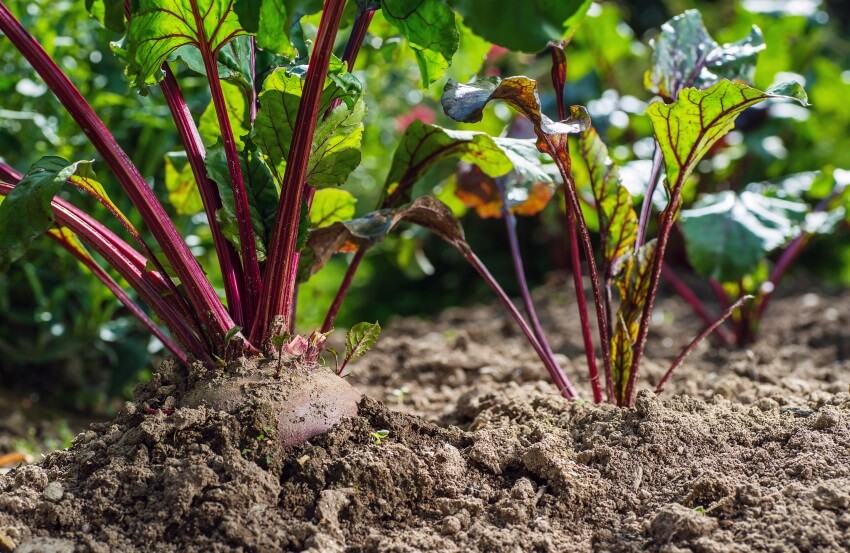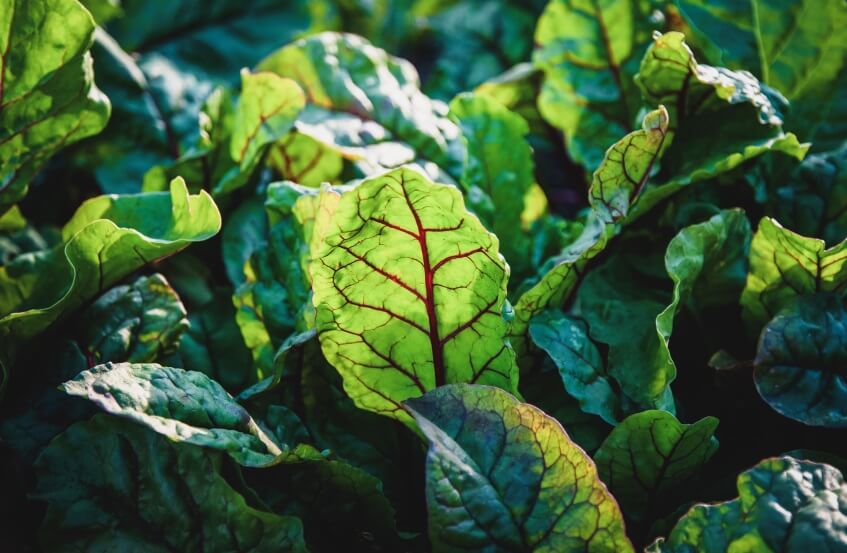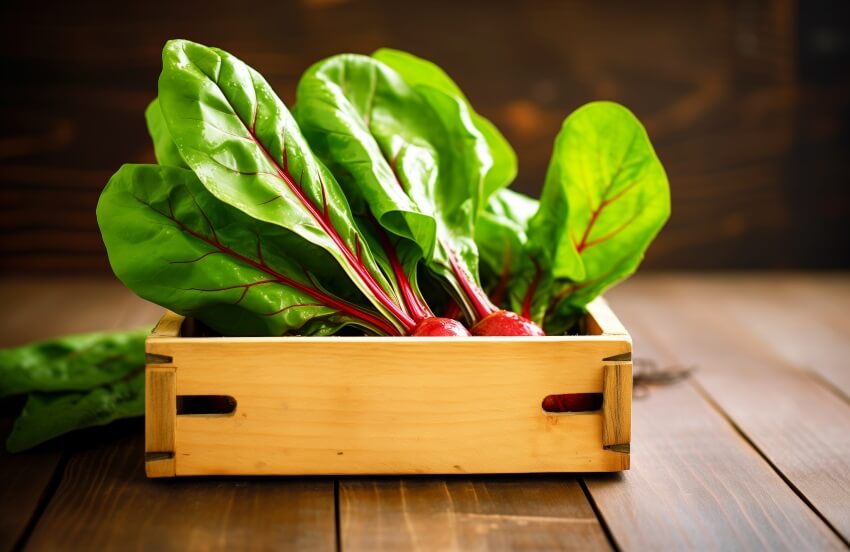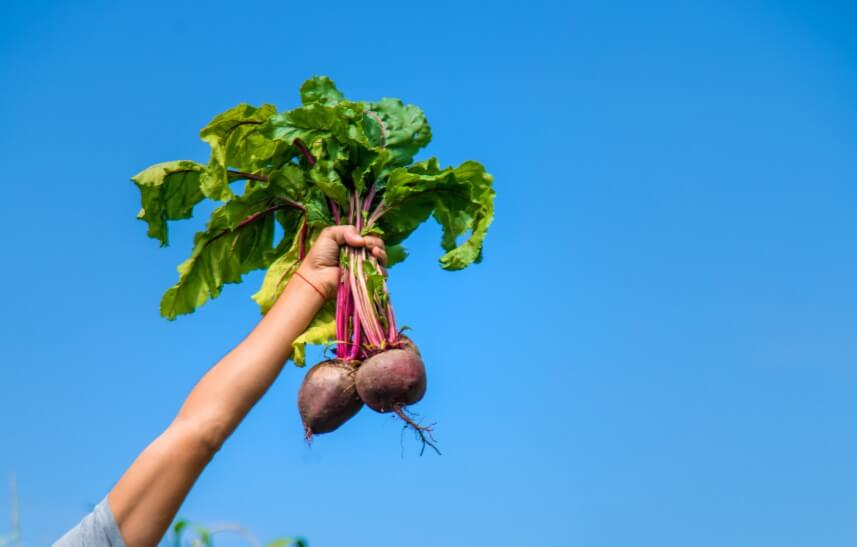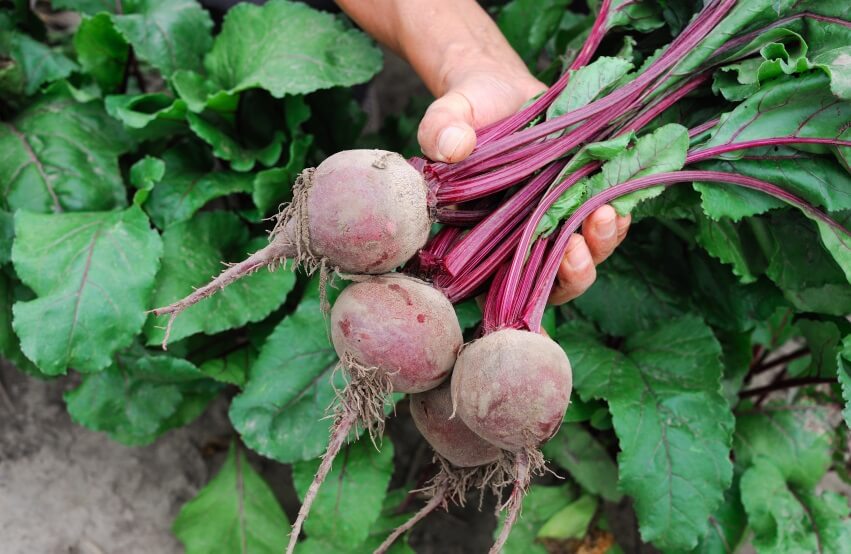Beetroot leaves, also known as beet greens or beet tops, are the edible green leaves of the beet plant (Beta vulgaris). While beetroot is commonly consumed for its root, its leaves are rich in nutrients and bioactive compounds that contribute to various health benefits. This article explores the nutritional profile and potential health benefits of beetroot leaves.
If you are interested in this topic, you can also read
<<Walnut Leaf Benefits>> and <<Fenugreek Seeds Benefits>> articles.
Nutritional Composition
Beetroot leaves are a rich source of vitamins, minerals, dietary fiber, and phytochemicals. They are particularly high in vitamin K, vitamin A, vitamin C, folate, iron, calcium, and antioxidants such as flavonoids and carotenoids. The nutritional composition of beetroot leaves contributes to their potential health benefits, including antioxidant, anti-inflammatory, and immune-boosting properties. As a result, including beetroot leaves in your diet can be an excellent method to enhance nutrient consumption and support overall well-being.
Composition of dried beetroot leaves at 100 days of development [1].
| Compound | Amount (g/Kg) |
|---|---|
| Moisture (g) | 105.9 |
| Ash | 145.06 |
| Crude protein | 310.25 |
| Total lipids | 127.32 |
| Carbohydrate | 307.21 |
| Energy | 3584.56 (Kcal/Kg) |
| Minerals | Amount (mg/Kg) |
| K | 20784.9 |
| Ca | 1864.85 |
| Mg | 1.79 |
| Fe | 256.3 |
| Cu | 13.42 |
| Zn | 13.31 |
| Co | 0.1 |
| Mn | 8.83 |
| Na | 4724.63 |
Health Benefits Of Beetroot Leaves
Antioxidant Activity
Beetroot leaves are rich in antioxidants like flavonoids, phenolic compounds, and carotenoids, which play a vital role in neutralizing harmful free radicals and mitigating oxidative stress within the body [2].
Anti-Inflammatory Effects
The compounds present in beetroot leaves exhibit anti-inflammatory properties, potentially aiding in the reduction of inflammation and easing symptoms associated with inflammatory conditions like arthritis and inflammatory bowel disease [3].
Cardiovascular Health
Beetroot leaves are rich in nitrates, which the body converts into nitric oxide. Nitric oxide aids in the relaxation of blood vessels, thereby enhancing blood flow and potentially reducing blood pressure. This benefit is crucial for heart health and may reduce the risk of cardiovascular diseases [4].
Digestive Health
The presence of fiber in beetroot leaves promotes digestive health by preventing constipation and fostering the proliferation of beneficial gut bacteria [5].
Bone Health
Beetroot leaves are a good source of vitamin K, which plays a crucial role in bone metabolism and may help improve bone density and reduce the risk of osteoporosis [6].
Eye Health
The high vitamin A and carotenoids levels in beetroot leaves contribute to eye health by protecting against age-related macular degeneration and cataracts [7, 8].
Energy Levels
The iron content in beetroot leaves helps produce red blood cells, which carry oxygen throughout the body. Sufficient iron levels can prevent fatigue and maintain optimal energy levels, which is essential for overall well-being [9, 10].
Weight Loss
Beetroot leaves are low in calories and fat while rich in nutrients, making them a great addition to a weight-loss or weight-management diet. The fiber content in beetroot leaves also helps promote satiety, reducing the likelihood of overeating.
Beetroot Leaf Benefits For Male
While there is limited specific research on the benefits of beetroot leaves specifically for males, the nutritional content of beetroot leaves offers unique advantages that can be beneficial for men:
Prostate Health
Beetroot leaves are rich in antioxidants, including vitamin C and beta-carotene, which may help protect against oxidative stress and inflammation. These properties could potentially support prostate health and reduce the risk of prostate-related issues in men [11].
Beetroot Leaf Benefits For Female
Beetroot leaves offer various health benefits for females, primarily due to their rich nutritional profile. Here are some potential benefits of beetroot leaves for female:
Folate Content
Beetroot leaves contain folate, a B vitamin that is crucial for fetal development during pregnancy. Adequate folate intake before and during pregnancy helps prevent neural tube defects in infants and supports overall maternal health [12].
Cervical Cancer Prevention
Studies have shown that beetroot leaf extract could be an effective approach against cervical cancer [13].
Beetroot Leaf Side-Effects
Although beetroot leaves provide numerous health advantages, excessive consumption or specific circumstances may result in potential side effects for certain individuals:
Oxalate Content
Beetroot leaves contain oxalates, which are compounds that may contribute to the formation of kidney stones in susceptible individuals. Those with a history of kidney stones or kidney disease should consume beetroot leaves in moderation and ensure adequate hydration to help prevent stone formation [14, 15].
Allergic Reactions
While rare, allergic reactions to beetroot leaves are possible, especially in individuals with allergies to other plants in the Amaranthaceae family, such as spinach or chard. Symptoms of an allergic reaction may include itching, swelling, hives, or difficulty breathing. Anyone experiencing these symptoms after consuming beetroot leaves should seek medical attention [16].
Blood Pressure Interactions
Beetroot leaves contain nitrates, which can help lower blood pressure when consumed in moderate amounts. As a result, individuals taking medication for high blood pressure (hypertension) should consult their healthcare provider before consuming large quantities of beetroot leaves, as it may interact with their medication and cause blood pressure to drop too low [17].
Interference With Calcium Absorption
Beetroot leaves contain oxalates, which can bind to calcium and interfere with its absorption in the body. While this is not typically a concern for individuals with a balanced diet, those at risk of calcium deficiency, such as individuals with osteoporosis, should be mindful of their oxalate intake from foods like beetroot leaves [18].
Pesticide Residues
Like other leafy greens, beetroot leaves may contain pesticide residues if not grown organically or washed thoroughly before consumption. To minimize exposure to pesticides, it is advisable to choose organic beetroot leaves whenever possible and wash them well before eating.
How To Eat Beetroot Leaf?
Beetroot leaves are versatile and can be enjoyed in various ways. Here are some ways to incorporate beetroot leaves into your diet [19]:
Salads
Chop beetroot leaves and mix them with other salad greens like lettuce, spinach, or arugula. Add your favorite vegetables, nuts, seeds, and dressing for a nutritious and refreshing salad.
Smoothies
Blend beetroot leaves into your favorite smoothie recipes for an added boost of nutrients. Combine them with fruits like bananas, berries, or mangoes, along with some yogurt or plant-based milk, for a delicious and healthy beverage.
Sauteed Or Stir-Fried
Heat a small amount of oil in a pan and saute chopped beetroot leaves with garlic, onions, and other vegetables for a nutritious side dish. You can also stir-fry them with tofu, chicken, or shrimp for a complete meal.
Soups And Stews
Add chopped beetroot leaves to soups, stews, or vegetable broth for extra flavor and nutrition. They pair well with root vegetables like carrots, potatoes, and onions, as well as herbs and spices like thyme, rosemary, and cumin.
Pesto
Make a vibrant and flavorful pesto sauce by blending beetroot leaves with garlic, nuts (such as pine nuts or walnuts), Parmesan cheese (or nutritional yeast for a vegan option), olive oil, and lemon juice. Use the pesto as a pasta sauce, sandwich spread, or dip for veggies or crackers.
Juicing
If you have a juicer, you can juice beetroot leaves along with other fruits and vegetables to create a nutrient-rich beverage. Combine them with apples, carrots, celery, and ginger for a delicious and healthful juice.
Grilled Or Roasted
Drizzle whole beetroot leaves with olive oil and season with salt, pepper, and herbs. Grill or roast them in the oven until tender and slightly crispy for a tasty and nutritious side dish or snack.
Herbal Tea
Dry beetroot leaves and use them to make herbal tea. Steep the leaves in hot water for a few minutes, strain, and enjoy the earthy and slightly sweet flavor of beetroot leaf tea. You can also combine them with other herbs like mint or lemon balm for added flavor.
Note: When preparing beetroot leaves, be sure to wash them thoroughly to remove any dirt or debris.
Moreover, it’s advisable to opt for organic beetroot leaves whenever feasible to reduce pesticide exposure and other chemicals.
Conclusion
Beetroot leaves are a valuable source of nutrients and bioactive compounds with significant health benefits. Incorporating beetroot leaves into the diet can contribute to overall health and well-being, offering protection against oxidative stress, inflammation, and various chronic diseases. Individuals with specific health conditions or concerns should consult with a healthcare professional before adding beetroot leaves to their diet, especially in large quantities or in concentrated forms like supplements. Further research is warranted to explore their therapeutic potential and optimize their utilization in functional foods, dietary supplements, and therapeutic interventions.


